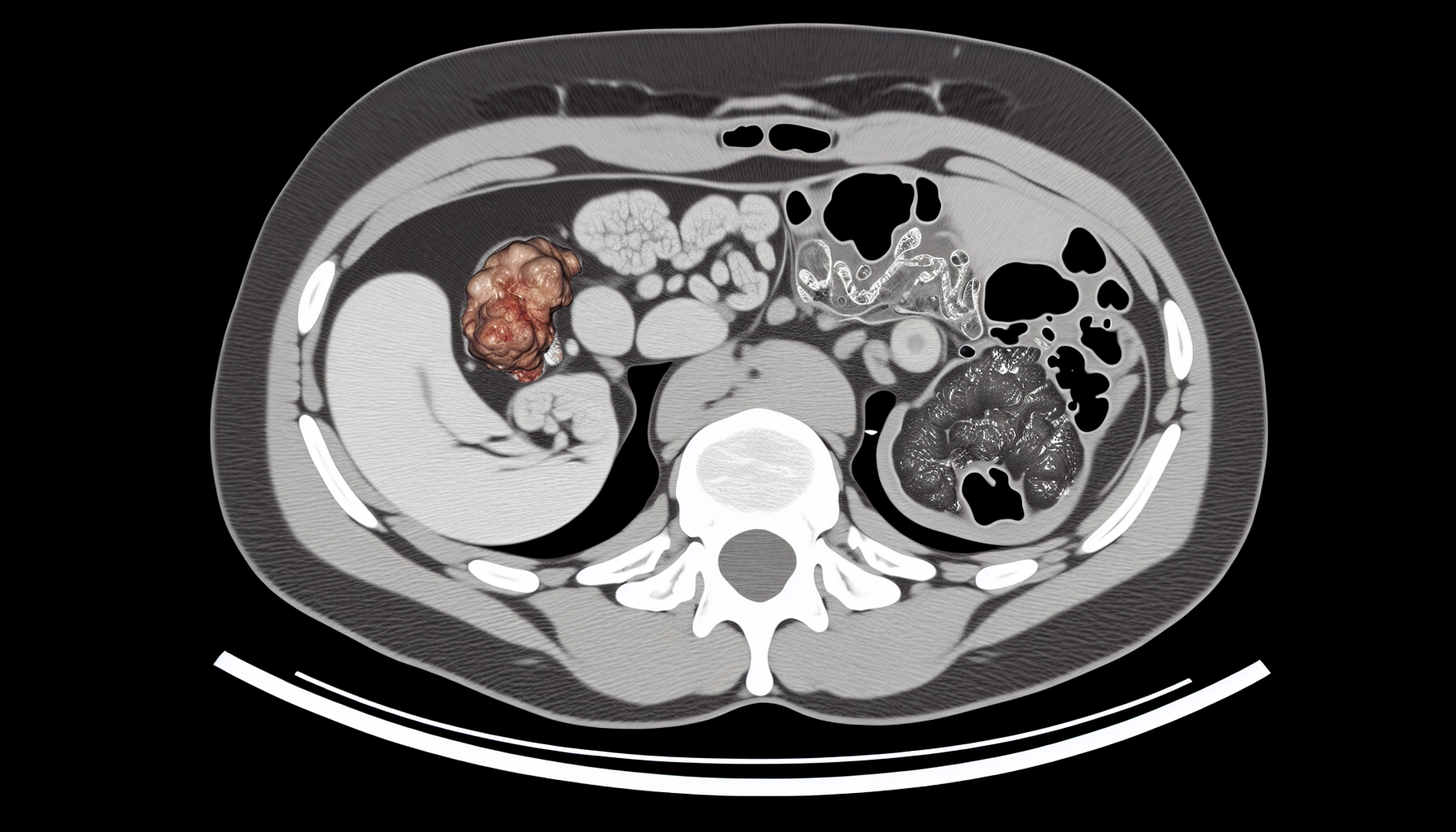Welcome to the intricate world of stage 4 colon cancer, focusing on the stage 4 colon cancer CEA level and its pivotal role in this advanced stage of the disease. Whether you’re a healthcare professional, a patient, or simply someone interested in understanding the complex relationship between biomarkers and cancer, this post promises to enlighten. The journey from understanding stage 4 colon cancer CEA levels to their prognostic value in this critical stage is fascinating, enlightening, and crucial for those directly or indirectly affected by this disease. Let’s embark on this journey together, shall we?
Key Takeaways
-
Carcinoembryonic Antigen (CEA) testing is an important tool for prognosis in colorectal cancer, providing insight into treatment response and recurrence detection.
-
CEA levels are correlated with a decreased survival rate, shorter survival durations, and lower treatment response rates in stage 4 colon cancer patients.
-
Alternative tumor markers such as CA19-9 and tests including CT scans & MRI provide Information for metastatic colorectal cancer patients.
My Top 10 Learnings
Don’t miss our
free Guide
10 Things I Wish I Knew Before My Cancer Treatment
Understanding CEA Levels

The acronym CEA stands for carcinoembryonic antigen, a protein that is produced during fetal development and can be secreted by colorectal adenocarcinoma cells. CEA, the spotlight of our journey, has established its reputation as a biomarker in colorectal cancer patients. But do normal levels of CEA exclude the possibility of a colorectal cancer diagnosis? Not quite.
One cannot rule out a colorectal cancer diagnosis, especially stage IV colorectal cancer, solely on the grounds of normal CEA levels.
CEA in Colorectal Cancer
Why is CEA such a key player in colorectal cancer? As a prognostic biomarker, it provides invaluable insights into the prognosis of patients who have had surgical resection and adjuvant chemotherapy. Interestingly, CEA is a protein generated by normal cells within our body but is produced in elevated quantities in specific types of cancers known as adenocarcinomas.
Research indicates that high preoperative carcinoembryonic antigen levels are linked to poorer survival in patients with colorectal cancer. This brings us to the procedure of the CEA blood test. CEA testing in patients with colorectal cancer is conducted by assessing the preoperative carcinoembryonic antigen level in the bloodstream through a simple blood test. Elevated CEA levels may suggest the existence of colorectal cancer, including poorly differentiated tumors, or the reappearance of the illness.
Factors Affecting CEA Levels
Diving deeper into the realm of CEA, understanding the various elements that can affect its levels becomes indispensable. The accepted levels for CEA within the normal range are typically considered to be between 2.5 and 5 ng/mL. But what if you’re a smoker? Well, smoking has the potential to elevate CEA levels in individuals diagnosed with colorectal cancer, as it can increase the production of cancer cells that release CEA.
Moreover, CEA levels can also be elevated in other types of cancers such as:
-
breast cancer
-
lung cancer
-
pancreatic cancer
-
ovarian cancer
These variations underscore the importance of considering multiple factors when interpreting CEA levels.
Stage 4 Colon Cancer: Overview

Armed with a solid understanding of CEA, let’s now explore stage 4 colon cancer, the disease’s most advanced stage. At this stage, cancerous cells have spread to distant organs, such as the liver or lungs, leading to colorectal liver metastases. The diagnosis of stage 4 colon cancer involves using various imaging studies and lab tests.
Individuals diagnosed with stage 4 colon cancer, or even rectal cancer, frequently manifest symptoms including:
-
constipation
-
diarrhea
-
rectal bleeding
-
abdominal pain
-
fatigue
-
unexplained weight loss
In such cases, colon and rectal surgery might be considered as a treatment option. It is important to note that treatment options may vary for those diagnosed with stage ii colorectal cancer.
Unfortunately, the usual outlook for stage 4 colon cancer is generally unfavorable, with a 5-year survival rate of approximately 13-15%.
This leads us to discuss the pivotal role of CEA in this advanced disease stage.
The Role of CEA in Stage 4 Colon Cancer

CEA levels play a vital role in stage 4 colon cancer, providing valuable information about the patient’s prognosis, treatment response, and recurrence detection. Elevated CEA levels in stage 4 colon cancer are associated with advanced stage, nodal metastasis, and lower survival rates.
Doctors use changes in CEA levels to gauge the tumor’s response to chemotherapy in stage 4 colon cancer.
Prognostic Value of CEA
Further exploring the prognostic value of CEA reveals that increased CEA levels in stage 4 colon cancer correlate with a less positive prognosis, shorter survival durations, and lower treatment response rates.
A study published in JAMA Surgery identified that patients with a CEA level equal to or greater than 275 ng/mL have a less favorable prognosis.
Monitoring Treatment Response
It’s essential to monitor CEA levels to assess treatment response in stage 4 colon cancer. For instance, a reduction in CEA levels indicates an encouraging response to treatment, signifying effective management of the cancer.
On the flip side, an elevation in CEA levels after treatment typically indicates a suboptimal response and prognosis.
Detecting Recurrence
CEA is also an effective tool in detecting colorectal cancer recurrence in individuals who have undergone curative resection for colorectal cancer. It is recommended to monitor CEA levels every three to six months after curative-intent surgery for patients with Stage 4 colon cancer.
Interpreting CEA Results in Stage 4 Colon Cancer

When interpreting CEA results in stage 4 colon cancer, the patient’s overall clinical picture, including imaging findings and other lab tests, must be taken into account.
Elevated CEA levels (>5 µg/L) at the time of diagnosis of stage 4 colon cancer are indicative of a poor prognosis.
Limitations and Considerations
Despite the valuable insights provided by CEA levels, they do have certain limitations. For instance, CEA levels are not considered reliable for exclusive use in the diagnosis of colorectal cancer due to the potential for false positives in conditions such as inflammation or benign tumors, as well as false negatives. CEA is also not suitable for early detection of colorectal cancer due to its insufficient sensitivity and specificity.
Alternative Tumor Markers and Tests

In addition to CEA, other tumor markers like CA19-9 and imaging tests such as CT scans and MRI can provide additional information for patients with metastatic colorectal cancer, also known as stage 4 colon cancer.
CA19-9 acts as a tumor marker with a significant role in diagnosing and monitoring Stage 4 colon cancer.
Summary
After a comprehensive exploration of CEA levels in stage 4 colon cancer, we will summarize the key points and conclude with a phrase that inspires the reader to further engage with the topic.
Frequently Asked Questions
Can CEA be normal in Stage 4 colon cancer?
Despite being less common, it is possible to have normal CEA levels in Stage 4 colon cancer.
What CEA level indicates metastasis?
CEA levels greater than 271 ng/ml indicate advanced tumor size, metastasis to the central compartment, and a decreased chance of biochemical cure, indicating metastasis.
What are the levels of stage 4 colon cancer?
Stage 4 colon cancer is also known as advanced bowel cancer, and is divided into stages 4A, 4B and 4C. This occurs when the cancer has spread to other parts of the body, such as the liver or lungs.
What is a bad CEA number?
A bad CEA number is one that exceeds 2.9 ng/mL of blood, with research indicating false-positive results as high as 35 ng/mL. Pre-treatment serum CEA levels of greater than five g/L but less than ten g/L suggest localized disease and a low likelihood of recurrence, while higher levels of >10 g/L indicate a higher likelihood of recurrence and poor prognosis.






Limited Edition
Top 10
Anti-Cancer Juices & Smoothies
Sign up to get access